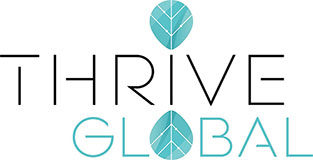
Busy? How To Work Smarter, Not Harder
MichaelSunnarborg / January 24, 2017 Article, Image, Link / Leave a Comment
Back to work, back to busy. The beginning of the year can be both exciting and exhausting. Having a substantial break from our normal workflow over the holiday season has its benefits—finding our motivation to jump back into the stream may not be one of them.
Once we get back to business—back to work, school, or normal routine—we find ourselves busy. After all, “busy” is the root of the word busyness (or as the word evolved: business).
However, just because we’re busy doesn’t necessarily mean we’re productive. In fact, much of our time getting back on track may be spent on unproductive effort if we are unaware of how we are approaching work—especially if we are feeling “behind.”
So we work harder.
While working harder may help us feel productive—as if we are getting closer to our goals—it can also keep us from recognizing redundancy, ineffective process, and poor habits. While we’re busy, we don’t have the luxury to pause and notice how we are working.
But that can change. We can learn to work smarter.
Working smarter is learning to prioritize, plan, and focus our energies with meaningful intent before we start our work. This means first pausing and putting ourselves into alignment with our goals before we begin—which can bring us closer to a state of flow. Working smarter also means developing healthy boundaries, understanding limitations, and getting to know ourselves better.
Want to start working smarter? Here are some tips:
Plan: Make A List. People who have worked in corporate environments—specifically in project management—have most likely heard the phrase, “Fail to plan; plan to fail.” Besides having long-term and larger goals, we can do ourselves a huge favor by taking a moment each morning to plan our day. Try creating a short list and adding only those things that are possible to complete today. Having a simple daily checklist can help us stay organized and feel a sense of accomplishment. (Tip: Sometimes I put the very easiest things early in the list so I get the rush of crossing them off and start to build momentum.)
Focus: Break Into Blocks. Studies show that the typical adult brain can focus for only about 20 minutes at a time. Dividing work into palatable chunks can help us stay focused longer and avoid fatigue. If we stay focused for too long, creative ideas can lose momentum. Observe your ability to focus and find what works best for you. When writing my first book, I realized that I write best in two-hour blocks—so I set a timer. I could schedule two to three writing blocks per day, but never for more than two hours at a time. I found that each time I came back to my writing, I had a fresh perspective. This proactive approach actually prevented the dreaded “writer’s block” from happening.
Pause: Feel Free to Move About The Cabin. Many of us sit while we work. And although sitting appears to be restful, sitting for long periods of time can actually be harmful. It is important to take frequent breaks throughout the workday. Get away from your desk, get out of the office, and unplug from technology on a regular basis. Moving our bodies can also stimulate our minds. Combine your breaks with blocks of work and you’ve got a winning combination!
Filter: Reduce Distractions. With more information coming at us all the time, many of us are suffering from information overload. But thanks to evolving technology, there are a host of ways to filter information and notifications through new products and enhancements to social media. Although filtering can have its downsides, there are healthy ways to filter out distractions by paying attention to what is taking our attention. In addition to filtering content, putting aside mobile phones or setting a smartwatch to reduce notifications while working is another example of working smarter by reducing distractions.
Notice: Find Your Time Zone. Do you like to hit the ground running early in the morning or prefer burning the midnight oil? Several theories point to the benefits of rising early, such as clarity of thought and increased productivity. While some people find early morning a time of inspiration, others have a slower start. I’m somewhere in between. Rising early provides internal inspiration, but I may have a hard time connecting with others in my early waking hours. Just because I wake up early doesn’t make me a “morning person.” Whether it’s inspiration in early morning or late at night, finding your creative time zone can help you reap its benefits.
Simplify: One Step At A Time. We all know about the concept of breaking up larger tasks into smaller pieces (think: “One bite at a time”; “One day at a time”; “One foot in front of the other”) to match the desired results with the pace of manifestation. Everything has a process. The thought of taking bites rather than mouthfuls isn’t just sound advice; it can keep us from choking on our food. Apply that to life. Rather than pushing our limits, having the patience to chunk our ideas and tasks into thoughtful and deliberate increments honors the organic unfolding of things. Plus, taking smaller bites allows for more deliberate focus and introspection.
Taking the time to assess how we work is just as important as the work itself, sometimes even more so. And by giving ourselves the opportunity to learn how to work smarter, we may even end the day with more energy and satisfaction than when we are trying so hard just to get it done.
Michael Thomas Sunnarborg helps people maintain balance through transitions in work, relationships, and life. Find more at michaelsunnarborg.com
Image: Copyright: pressmaster / 123RF Stock Photo




Excellent advice. Keep fighting the good fight, MTS.
Thank you, Snap! Hope all is well out West 🙂
thanks for the awesome suggestions. Nice article it is